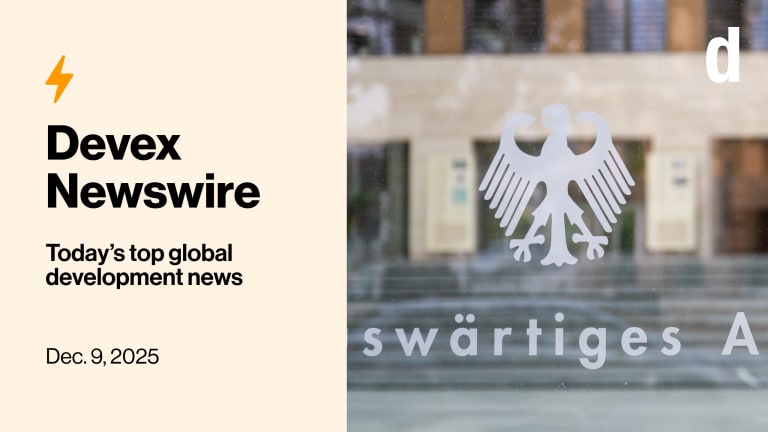
In the latest Organization for Economic Cooperation and Development peer review of it aid program, Belgium is applauded for having reached the U.N. target of providing at least 0.15 percent of its national income to the least developed countries, and for promising to give 50 percent of all its aid to the poorest nations.
Belgian development assistance has contributed to the enormous development success seen over the past decades. Extreme poverty has been halved in one generation. Child mortality has been halved, saving about 17,000 children every day. The huge global progress has been a product of better policies and rapid economic growth in developing countries. In China alone, about 600 million people were brought out of poverty as the economy grew by 10 percent annually for decades. But development assistance, included that from Belgium, has played its part.
Continued rapid economic growth in Africa and other parts of Asia will be essential to end poverty and implement the new sustainable development goals. These are 17 green development goals to be agreed by world leaders at the U.N. headquarters in New York later this month. But the complete eradication of extreme poverty and hunger by 2030 will not be achieved purely through economic growth alone — not even if the entire continent of Africa grew at 10 percent per year for the next 15 years.
More aid to the poorest nations and specific policies targeting the most vulnerable groups will be required to end poverty and hunger. Extremely poor people will increasingly live in fragile states and countries in conflict. Poverty is more concentrated in vulnerable groups, such as indigenous communities, small farmers, ethnic and religious minorities, and the disabled. More women than men are poor. Global development assistance reached a record high of $135 billion last year, but many countries are giving a decreasing share to the poorest countries. Belgium’s pledge to send half of its aid to the least developed sets a strong example to the European Union and other donors.
The OECD peer review also finds that Belgium is an active partner and advocate for other donors to remain engaged in fragile states and countries in conflict. Belgium provides development assistance in areas where other donors are not present, such as remote areas of the Democratic Republic of the Congo. Belgium’s positive experience with a common fund for education in Burundi is a great example of how to support development as well as state building in vulnerable countries. The education system in Burundi used to be very fragmented. Too many donors built schools and did things that were not necessarily in line with what Burundi wanted. The purpose of the fund was to pool all the resources together to support the national education systems and align with the government of Burundi’s 2012 education strategy. Children in Burundi will learn more when the education system responds to their needs.
Development aid is important and Belgium provides 0.45 percent of gross national income to aid. That is above the average but far from the international target of 0.7 percent and Belgium’s personal best of 0.68 percent from back in 2010. I will strongly encourage Belgium to defeat the negative trend in its disbursement for aid. Since Belgian aid is well-spent, increased aid will have a major positive impact.
Development aid is important. But private investment is an even more important source of funding for green power, jobs and development. Foreign direct investment is five times greater than aid and the private sector is responsible for 90 percent of all jobs in developing countries. Belgium has reinforced its approach to mobilize investments for the local private sector in developing countries.
The Belgian Investment Company for Developing Countries is particularly promising. BIO has funded hydropower in Nepal and invested in an electric appliance company in Uganda. BIO provides risk financing to attract mainstream financial institutions to profitable projects private investors otherwise would shrink away from. BIO helped the Bank of Africa set up a branch in Goma, a city in a Congolese province that for 20 years was the scene of a terrible civil war. No investor wanted to go there even after violence died down and the economy recovered. But with support from BIO, the bank set up a lending facility that just in a year provided over 250 healthy loans for small factories, transport companies and health care providers.
Aid is important and Belgium should spend more. That will put Belgium in a position to inspire other donors to do what Belgium does so well: More and better aid to the poorest nations and countries in conflict. And use aid to mobilize more private investments in developing countries.
Join the Devex community and access more in-depth analysis, breaking news and business advice — and a host of other services — on international development, humanitarian aid and global health.








